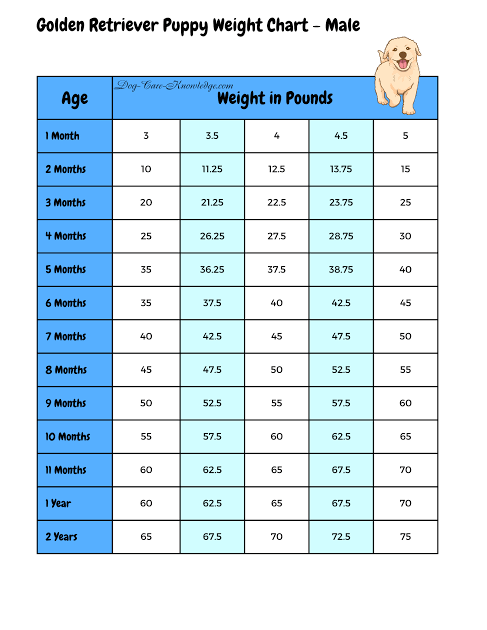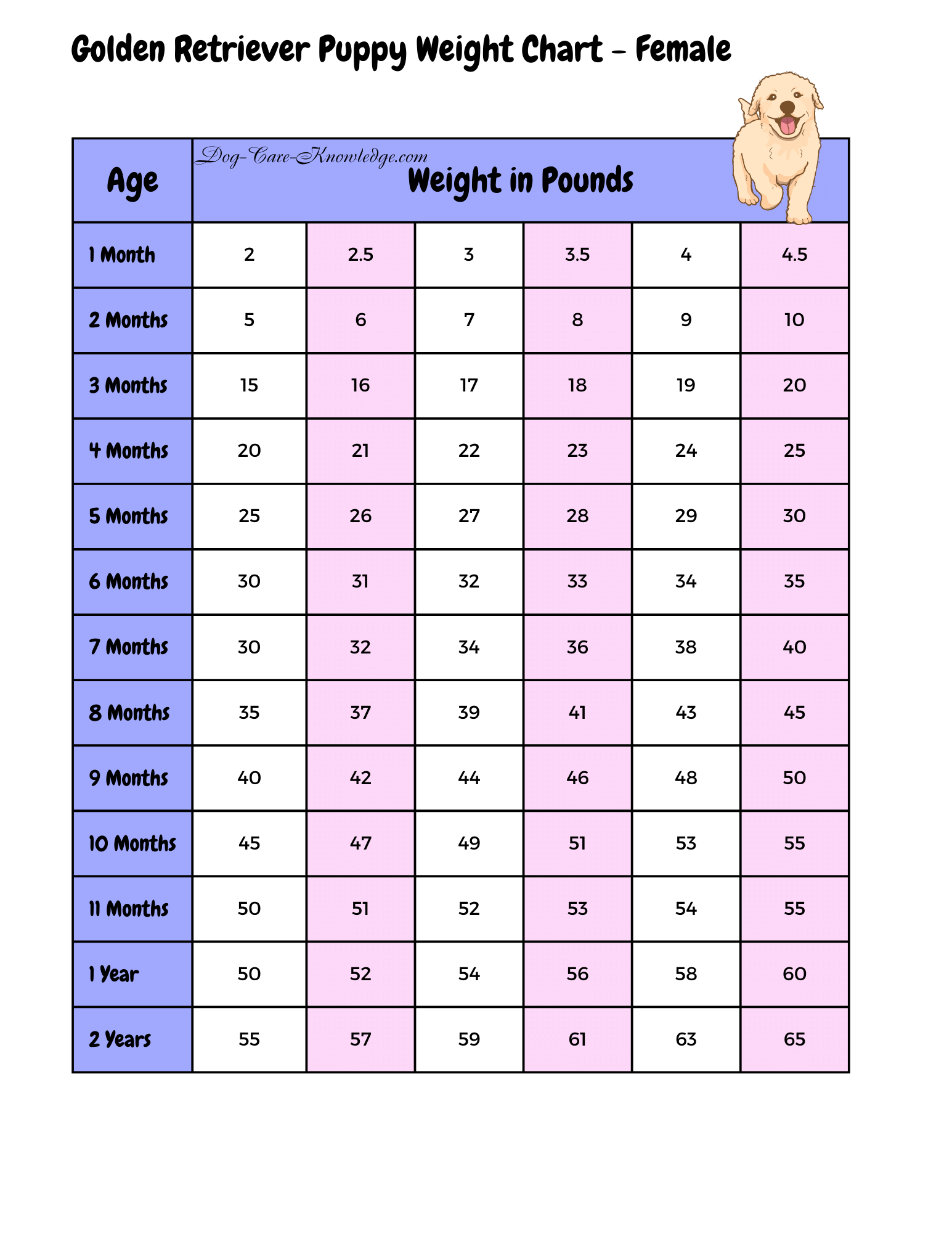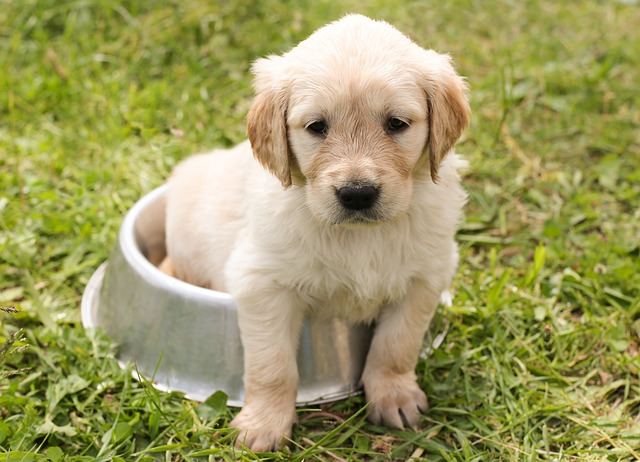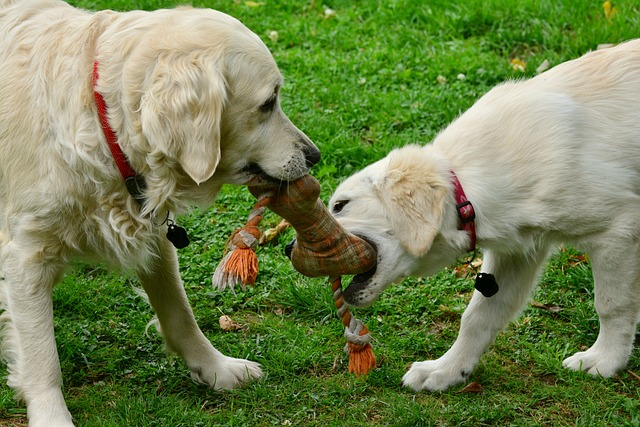Unlock the Secrets of Golden Retriever Weight: A Comprehensive Guide to Ideal Size, Health, and Nutrition

Golden retrievers are known for their amiable nature, ranking them among the most favored dog breeds.
Understanding the weight and growth patterns of these beloved pets is essential for their overall health and well-being.
In this article, we will delve into various aspects of golden retriever weight and growth.
From the average weight of golden retriever dogs to weight charts, we will explore the different life stages and key milestones in their growth journey.
Additionally, we’ll discuss the dangers of stunted or accelerated growth and provide tips on keeping your golden retriever healthy.
Golden Retriever Puppy Growth Patterns: How Much Should a Golden Retriever Weight?
During the puppy stage, golden retrievers experience rapid growth. Male and female golden retrievers have slightly different growth patterns.
Most golden retrievers reach their adult weight between 10 to 14 months of age.
Adult golden retrievers typically weigh between 65-75 pounds (29-34 kg), while adult females weigh between 55-65 pounds (25-29 kg).
However, it’s important to note that individual dogs may vary slightly from these averages. Regular monitoring of their weight and consulting with your veterinarian can help ensure your golden retriever is growing healthily.
Male Golden Retriever Weight Growth Chart from Puppy to Adult
Here is a growth and weight chart for male golden retriever puppies and adult dogs. This weight chart is originally found on Dog Care Knowledge!

Female Golden Retriever Weight Growth Chart from Puppy to Adult
Shown here is a growth and weight chart for female golden retriever puppies and adult female golden retrievers. This growth chart is originally found on Dog Care knowledge.

Golden Retriever Growth (Life Stages)
The golden retriever breed goes through different life stages, each marked by significant growth and developmental milestones.
Understanding these stages is crucial for providing proper care and nutrition to your furry friend.
Neonatal Stage

The neonatal stage begins from birth and lasts around two weeks. During this stage, golden retriever puppies are completely dependent on their mother for nutrition.
Their weight gain during this period is crucial as it indicates they are receiving adequate nutrition from their mother’s milk. Puppies also start developing their baby teeth during this stage.
Key Development Milestones
- Opening of eyes and hearing capabilities.
- Gradual weight gain and growth of bones.
- Beginning of teeth eruption.
Socialization Stage

The socialization stage occurs from around two to twelve weeks of age. Both the female golden retriever puppies and the male puppies weigh about the same at this stage.
Puppies become more aware of their surroundings and start exploring their environment.
Proper socialization during this period is vital for a puppy’s growth. Weight gain continues as puppies transition from mother’s milk to solid foods.
Key Development Milestones
- Increased interaction with littermates and humans.
- Introduction to solid foods.
- First baby teeth begin to fall out, making way for adult teeth.
Juvenile Stage

The juvenile stage spans from three to six months of age. During this period, puppies experience a growth spurt, both physically and mentally.
They become more energetic and curious, requiring ample exercise and mental stimulation.
Key Development Milestones
- Rapid growth in height and weight.
- Continued teething as adult teeth fully emerge.
- Development of adult coat.
Adult Stage

By the age of one, golden retrievers are considered adults.
However, they may continue to grow slightly in terms of weight and height until they reach their full size, which usually occurs between 18-24 months.
Adult male golden retrievers typically measure between 23-24 inches (58-61 cm) in height at the shoulder, while females measure between 21.5-22.5 inches (54-57 cm).
Key Development Milestones
- Attainment of adult weight and height.
- Physical maturity and full development of musculature.
- Emotional and behavioral stability of the adult dog.
Sexual Maturity Stage

Sexual maturity typically occurs between six to twelve months of age. This stage is marked by hormonal changes and the onset of reproductive abilities
Key Development Milestones
- Behavioral changes related to mating instincts.
- Potential physical changes, such as weight gain in females during pregnancy.
Dangers Of Stunted Or Accelerated Growth
Both accelerated and stunted growth can have detrimental effects on a golden retriever’s health. Stunted growth, often caused by malnutrition or genetic factors, can lead to skeletal deformities and long-term health issues.
On the other hand, accelerated growth, often caused by overfeeding or rapid weight gain, can result in skeletal problems and an increased risk of joint disorders.
Maintaining a balanced diet, monitoring weight and growth milestones, and providing proper nutrition are essential for ensuring your golden retriever grows at a healthy pace.
How to Keep Your Golden Retriever Healthy?

Diet
Provide a balanced and nutritious diet that meets the specific needs of your golden retriever’s age and activity level.
Gradually transition them from puppy food to adult food based on their growth and weight. Consult with your veterinarian to determine the appropriate portion sizes and feeding schedule.
Exercise
Regular exercise is important for maintaining a healthy weight and promoting muscle development. Putting on too much weight can be detrimental to your dog’s health.
Engage your golden retriever in daily physical activities such as walks, playtime, and interactive games.
However, be mindful of not overexerting them, especially during a golden retriever’s growth stages, to prevent strain on their developing joints.
Vaccinations
Follow a vaccination schedule recommended by your veterinarian to protect your golden retriever from common diseases and ensure their overall health.
Treat genetic diseases
Golden retrievers are prone to certain genetic health disorders, such as hip dysplasia. Regular check-ups, genetic testing, and preventive measures can help identify and address these issues early on, improving their quality of life.
Conclusion
In conclusion, understanding the weight and growth patterns of golden retrievers is vital for their overall health and well-being.
The average golden retriever’s weight is around 55-75 pounds. By monitoring their growth milestones and providing appropriate care, nutrition, and exercise, you can ensure your golden retriever grows into a healthy and happy adult.
Remember to consult with your veterinarian for personalized advice and guidance throughout your golden retriever’s life.
With proper care, your golden retriever can enjoy a healthy and fulfilling life as a beloved member of your family.
FAQs
When does a golden retriever stop growing?
Golden retrievers stop growing when they reach their adult size, which is at about 18-24 months of age. However, golden retrievers grow at different speeds so finding a a full grown golden retriever at age less than 18 months is not uncommon.
How Much Exercise Does Your Golden Puppy Need?
Golden retriever puppies need regular exercise, but it should be balanced to avoid strain on their developing joints. Aim for short, supervised play sessions and controlled walks appropriate for their age.
How Can I Tell How Big My Golden Retriever Will Be?
While it’s challenging to predict the exact size of your golden retriever, you can estimate their potential size based on their parents’ sizes and consider their growth rate and milestones during their development.
How Much Food Does Your Golden Retriever Pup Need?
The amount of food a golden retriever puppy needs depends on their age, weight, and activity level. Consult with your veterinarian for precise feeding guidelines to ensure their proper growth and development.
